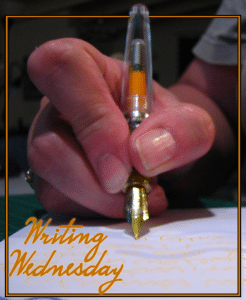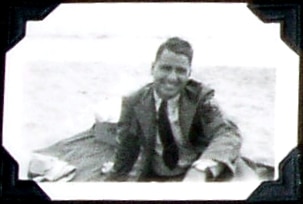Welcome back to Writing Wednesday! Since so many of us are writers, I know we all must read lots of writing blogs. So let’s share some of the great things we learn about writing through a fun new linkup! It’s like a blogfest, only easier!
Last time, we had six great entries:
- Jordan McCollum – Basics of plot
- John Waverly – Best Writing Advice
- John Waverly – Worst Writing Advice
- Margot Hovley – Poisoning Creativity
- Daniel R. Marvello – Politics in Fantasy
- Rebecca Blevins – How Not to Make Your Readers’ Heads Explode
Share your best posts on writing today!
What are the rules?
- All articles must directly relate to writing. If you see something that makes you think of a writing principle, and you want to participate, I recommend you blog about your thoughts, and then submit your blog post.
- You should use a descriptive name so we all want to click on the article: Jordan McCollum wouldn’t be very enticing, but Doing Backstory Right would.
- Articles can come from your blog or someone else’s.
- If it’s your post, PLEASE link back to Writer Wednesday in the post so your visitors can join in the fun! (You can use the badge below—the code includes a link!)
- You can submit up to three articles total.
- Posts can be old or new.
- You have until Tuesday, 2 August 2011 to submit.
- If you’d like to follow me, I certainly wouldn’t object! It’s not required, though.
Why should you participate?
- We can all benefit from this!
- Find new blogs and great writing advice—without sifting through the ENTIRE INTERNET.
- Share the articles you’ve worked so hard on with my 200+ RSS subscribers.
- It’s a great way to grow a blog!
How can I get a cool badge?
Copy the code below and paste it into a blog post or a gadget/widget in your sidebar. (It’s in HTML, so be sure you’re adding an HTML gadget, or select the Edit HTML/HTML tab above the text window on the edit post page.)
Where do we put our links?
Right here! Please remember to link directly to your post (i.e. ihaveablog.blogspot.com/2011/05/i-have-a-post.html and NOT ihaveablog.blogspot.com—this makes it easier to find the article!) and use a descriptive name (i.e. How to handle backstory and NOT Yippity Skippity Blog!).
Just fill in the boxes below to get started:
- Daniel R. Marvello – Evolution of a Beat Sheet
- ? Doc: Dealing with the questions that come up while writing
How about a prize for one contributor? One link author, chosen at random (only links entered by their authors are eligible), will receive Next time around, I’m thinking about offering a prize for one participant chosen at random. What would you like to see as a prize?
Thanks for participating!
Photo: writing with my new pen by Melanie Cook




 The character I’m playing with today is Frank Walters. He served in the Office of Strategic Services in World War II and when the story takes place, just after the war, he’s with the Central Intelligence Group (predecessor of the CIA). Physically, he’s based loosely on my husband’s grandfather Walter, who was in the Navy in WWII, pictured here. (Somehow we ended up with his WWII scrapbook. He traveled the whole world during the war, with pictures and postcards from Hawaii, Scotland, Iceland, Morocco, the South Pacific, and I know he served in Japan, too.)
The character I’m playing with today is Frank Walters. He served in the Office of Strategic Services in World War II and when the story takes place, just after the war, he’s with the Central Intelligence Group (predecessor of the CIA). Physically, he’s based loosely on my husband’s grandfather Walter, who was in the Navy in WWII, pictured here. (Somehow we ended up with his WWII scrapbook. He traveled the whole world during the war, with pictures and postcards from Hawaii, Scotland, Iceland, Morocco, the South Pacific, and I know he served in Japan, too.)


